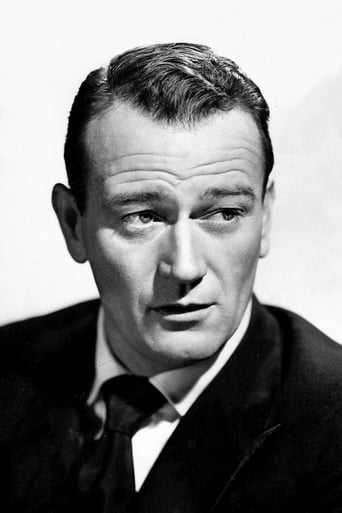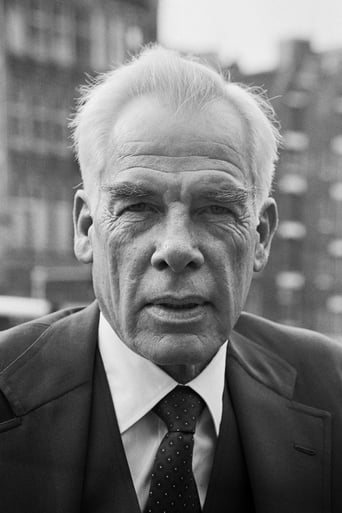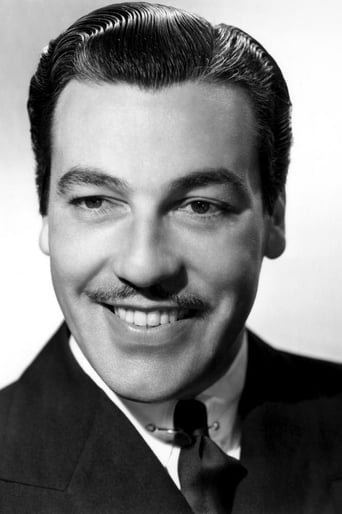ChanBot
i must have seen a different film!!
Odelecol
Pretty good movie overall. First half was nothing special but it got better as it went along.
Kirandeep Yoder
The joyful confection is coated in a sparkly gloss, bright enough to gleam from the darkest, most cynical corners.
Zandra
The movie turns out to be a little better than the average. Starting from a romantic formula often seen in the cinema, it ends in the most predictable (and somewhat bland) way.
Trey Yancy
This film overflows with Ford's traditional manly cuteness. By the time this film was made however, it had all become utterly corny and totally cliche - for example the drunken bar fight that always must include the traditional bits of friends hitting each other for comic relief and the presence of one guy standing calmly as the fight carries on around him. All that is missing is Ward Bond, Victor McLaglen, and Jay Flippen,The story is a bit of a mess. While the main story is a good one, the silliness of the rest of it (which was aimed at society in an age when alcoholism and being falling down drunk was considered humorous) is very hackneyed.In the standard saloon / nightclub scene, had to be in nearly every film of the day, is odd because Dorothy Lamour speaks the lyrics instead of singing them. There are other oddities as well.Overall, the film might have worked in the early fifties, but it doesn't play all that well for modern audiences. As such, it is hard to give it a high rating, particularly in comparison to other films of the day, such as the endearingly funny Cary Grant film, Father Goose, which had a more modern and intelligent style and which shut the door on films such as Donovan's Reef. Considering that the Ford-directed comedy Mister Roberts had been made seven years earlier, it is odd that John Ford would trot out an old-style comedy as late as 1962.
sol-
Hoping to inherent a substantial fortune by proving that her estranged father is a man of ill repute, a Boston woman travels to the tropical island where her father has long resided in this late career John Ford comedy. Elizabeth Allen is well cast as the prudish woman in question who gradually softens during the course of the film, but top billing here goes to John Wayne and Lee Marvin, cast as her father's friends. Wayne in fact has the most screen time as he takes to covering up the fact that Allen's father married a local woman - and had three non-Caucasian children - by pretending that the kids are his own. The comedic potential of this angle is never quite maximised though as Ford instead tries to derive humour from friendly fistfights and physical comedy (a man crashing through a concert piano). Wayne's formulaic romancing of Allen is not especially funny either, but then again comedy was never Ford's strongest suit. The film is more worthwhile than it may sound though. The snapshot of island life is fairly alluring with many races living there in peace and harmony. The locations are quite spectacular too and one gets a sense that the characters living there are quite rich in other ways, even if they do not have a fortune to inherit. The film has a very good supporting cast too, though most do not have a lot to do. Caesar Romero is perfectly smarmy, Jack Warden is solid as Allen's father and Jacqueline Malouf is great as Warden's eldest daughter who has to contend with the emotional toll of meeting her half-sister for the first time and pretending to be someone else.
Neil Welch
Donovan's Reef is a most peculiar creature.You might call it a romantic comedy, because that is probably the strongest thread running through it. Then again, there is a large element of knockabout farce involved. At the same time, it makes some quite serious points about racism, albeit it does so in a way which was reasonable at the time but which, seen from a modern viewpoint, almost reinforces a racism viewpoint (the Japanese residents of Haleakaloa, for instance, are very stereotyped). And you might also think of it as a travelogue, because it makes full use of the beautiful Hawaiian locations. It's also worth observing that, viewed from 2010, it is pretty sexist, too - all a woman needs to bring her into line is a good spanking followed by a good kissing, and all that! But for all that, it is a good natured film, and it has a warm heart. Wayne delivers the character we have seen in so many westerns, Lee Marvin and Caesar Romero overact dreadfully (but, to be fair, they are required to), Jack Warden is the conscience of the film, and the sinfully underused Elizabeth Allen (she had a successful TV career, but this was her highest profile film) is its heart. I also very much liked Jacqueline Malouf as Lelani, in a performance of maturity beyond her years, bridging the gap between the inconsequentialities of a child on the brink of adolescence and the dignity of a princess born.I simply enjoy this film very much, and I treasure it for the moment when Amelia shows that she has worked everything out, and welcomes Lelani as her sister, one of my all time favourite movie moments.
Robert J. Maxwell
This colorful story of Wayne and Marvin getting together for their annual fist fight on their shared birthday might have been preposterous and funny -- something along the lines of "What Price Glory?" It had the right ingredients in its cast and crew.But by this time, maybe, Ford was pushing seventy and age usually doesn't help the configuration of a good comedy. Wayne looks a bit old for the part of "Guns" Donovan, ex-Navy man who runs a saloon on an island in French Polynesia and falls for the much younger Elizabeth Allen, who isn't a bad actress and is nicely put together.Marvin is about right in his appearance and he hams it up vigorously as if actually enjoying the role of the shallow and sneaky ex-boatswain's mate. The rest of the cast makes the most of what they have.The exuberant fist fight involving the Royal Australian Navy is, if not the equal of some of Ford's other comic brawls, at least a wonder in its own right.But Ford's judgment lapsed now and again. Jack Warden has proved that he can do comic support in films like "Heaven Can Wait" and "Being There," but in this film he seems to be wondering why he's here. The quasi-romance between Marvin and Ford's old native seductress from "The Hurricane," Dorothy Lamour, is shallow, but nobody cares much anyway. Certainly not Marvin, distracted by his toy train set, squinting at the locomotive from rail level, as every kid has done at Christmas.Maybe the problem is that there's simply too much sentiment and not enough comedy. Those three kids are pretty tiresome, especially the two younger ones. Jacqueline Malouf I give a pass to. She's supposed to be only a teen ager but, well, I give her a pass for looking so thoroughly nubile.Ford's own yacht, The Araner, has a couple of featured moments. The director was to sell it shortly because it was so old that just keeping it up was a financial burden. Ford hated giving it up, as he hated relinquishing anything from the past. But like the movie, like Ford himself, it was simply past time for its retirement.





